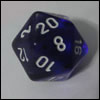(note: this post is kind of a continuation of some rambling that I did a few days ago about internal conflicts that I’m currently working through with my D&D character…)
Sometimes I wonder exactly what perspective my character would have in looking in on another people’s civil war.
The thing is, I’m not sure if maybe I’m putting more insight into it than my character might be wont to, but I guess I’ve tried to err on the side of caution with the interpretation that just because a particular village happens to be in lands controlled by The Duke Who Went Crazy doesn’t necessarily mean that all of its villagers buy-in to that side of the war, and that ultimately they still owe their allegiance to the rightful king of the land.
It gets even another step more complicated when I add that although my instinctual rule of thumb would be that anyone in uniform who has taken up arms can safely be considered an enemy combatant, in that last post I gave a prime example of conflict in looking at the grumbling guards because maybe they just didn’t like guarding a seemingly empty keep, or maybe they were having conflictions themselves over which side they actually wanted to be on.
Now try to look at this from the perspective of a character who’s not really used to being around people’s who have anywhere near this range of political depth. If someone attacks you or tries to harm your land, they’re your enemy and you have every justification to retaliate with any force necessary. He’s just not from a world where people plot against each other like this and some may find themselves casualties of war both directly and indirectly without ever even choosing a side. For Adran, he wants to give people the benefit of the doubt right up until they wave a sword menacingly in his face, even if that delay may have cost him a strategic advantage in missing the first strike.
I don’t know – maybe it’s ok that he has that reservation when faced with something foreign because in a way I sort of think it speaks something about his character. Sure, it means that there’s a little added liability due to this personality nuance and it doesn’t really make him the most ideal soldier, but at the same time, nobody’s perfect and part of the fun of playing a long-term campaign is being able to play characters that have a little more depth to them and explore these kinds of backgrounds that make a PC who he is from session to session. Besides, I didn’t really create him with the intent of him being a militia-type soldier anyways, and it’s not like he doesn’t also have strengths that someone of an army nature might be lacking in place of a more disciplined fighting style, either.
I guess the takeaway here should be that while I maybe shouldn’t be so quick to second guess myself altogether, there’s still a great benefit to come from re-assessing past decisions from time to time, even if just to explore and reaffirm the reasonings behind why I made them in the first place so that hopefully I can do a better job of role playing them out at the table so that the rest of the party gets a better idea of where my character is coming from as well! 
